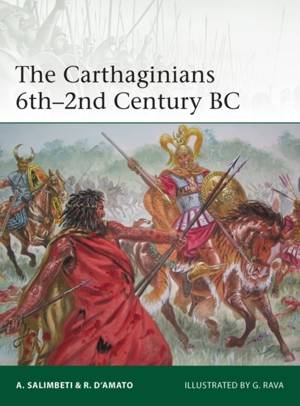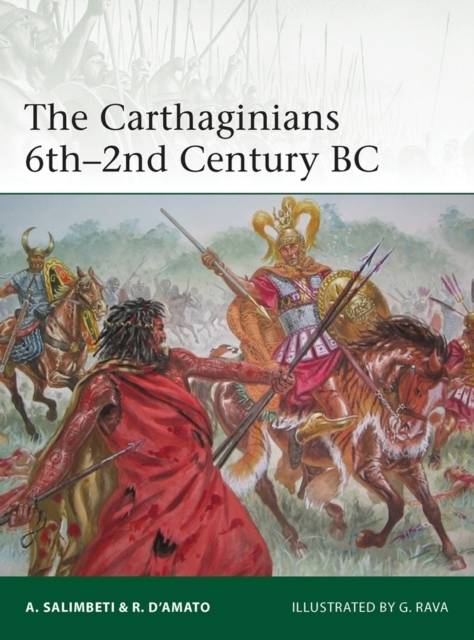
- Retrait gratuit dans votre magasin Club
- 7.000.000 titres dans notre catalogue
- Payer en toute sécurité
- Toujours un magasin près de chez vous
- Retrait gratuit dans votre magasin Club
- 7.000.0000 titres dans notre catalogue
- Payer en toute sécurité
- Toujours un magasin près de chez vous
Description
Carthage became Rome's greatest and most legendary enemy under the generalship of Hannibal in battles like Cannae. During the Punic Wars, Carthage's elite mercenary-professional army was ultimately defeated by Roman endurance and Scipio's genius.
Carthage, the port-city in Tunisia first settled by Phoenicians from Tyre, grew to extend a competitive maritime trading empire all over the Western Mediterranean and beyond, increasingly defended by the best navy of the period. In the 6th century BC this came into confrontation with Greek colonists in Sicily, starting major wars that lasted through the 5th and 4th centuries, and involved much interaction with different Greek forces. During the 3rd century Carthage first clashed with Roman armies, and in the course of three wars that raged over Spain, Sicily and Italy the Romans suffered the greatest defeats in their early history (e.g. Lake Trasimene and Cannae, 217 and 216 BC) at the hands of Hamilcar, Hannibal and Hasdrubal Barca, leading multinational armies of North Africans and Europeans. It was 202 BC before Hannibal was decisively defeated by Scipio Africanus at Zama, and 146 BC before Carthage itself was finally captured and destroyed. The victors tried to wipe the memory of Carthage out of the historical record, and while Hannibal himself has attracted fascinated study, little work has been done on trying to explain the character and reconstruct the appearance of Carthaginian armies. The authors of this study present a careful synthesis of all available literary, archaeological and iconographic evidence, in the most up-to-date attempt to do so. Their findings are dramatized in a portfolio of detailed and animated color plates by Giuseppe Rava.Spécifications
Parties prenantes
- Auteur(s) :
- Editeur:
Contenu
- Nombre de pages :
- 64
- Langue:
- Anglais
- Collection :
- Tome:
- n° 201
Caractéristiques
- EAN:
- 9781782007760
- Date de parution :
- 22-04-14
- Format:
- Livre broché
- Format numérique:
- Trade paperback (VS)
- Dimensions :
- 183 mm x 244 mm
- Poids :
- 199 g

Les avis
Nous publions uniquement les avis qui respectent les conditions requises. Consultez nos conditions pour les avis.






